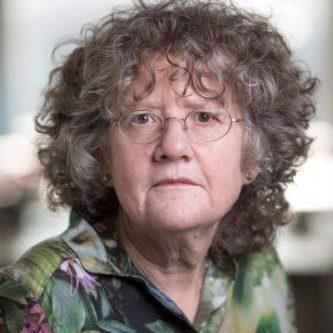A fundraiser’s alchemy: turning tears to gold
SOFII firmly believes that we have much to learn from the past. Here Lyndall Stein reinforces that view by telling us of her experiences working for the Terrence Higgins Trust (THT) in the 1990s. She also endorses SOFII’s other, passionately held, view that fundraisers must tell stories – and not be afraid to take a risk. But the most important thing she has learned is that it is a privilege to be a fundraiser.
- Written by
- Lyndall Stein
- Added
- May 20, 2013
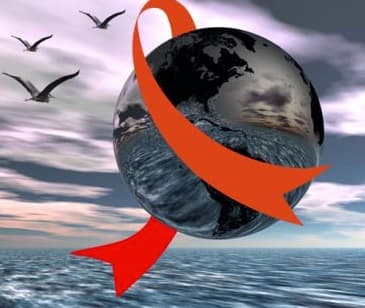
It is now 30 years since the early days of the HIV/AIDS pandemic, the HIV virus had not been identified and the devastation was only just beginning. No one could have predicted the horror to come; the pain, the suffering and the many millions of deaths across the world in our most glamorous cities and in the most remote, poorest communities. What united those separated by such different cultures, countries and resources?
The experience of being isolated, excluded and afraid created an extraordinary tapestry of connectedness and common purpose, which brought effective solutions – that were eventually available – to many millions of people affected, from London to Luanda, from New York to Namibia, from the Ukraine to Uganda. All of this was fuelled by courageous people, willing to tell their stories and by the extraordinary energy of so many, who were determined to make the funds available to all those whose lives and communities depended upon new approaches and new treatments.
Now we can see the amazing achievements of recent years, many billons of pounds raised, many millions spent on effective drugs and an epidemic that at last is showing signs of a gradual decline with new tools that can contain and control this pandemic. The connection between organisations in richer parts of the world and in poorer parts has been a critical factor in getting the right level of attention and support.
Inspiring leadership
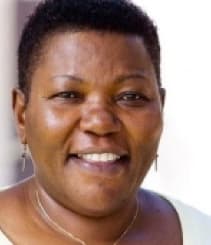
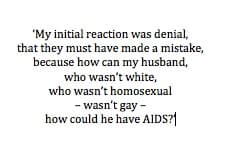
In the very early days of the epidemic, a group of distraught widows and women living with the virus, who were expecting to die, were given support by a far-sighted ActionAid director in Uganda, Colin Williams. He gave the group some training, a small grant and paid for the leading light, the acclaimed Noerine Kaleeba, who had lost her beloved husband to the virus, to visit the Terrence Higgins Trust (THT) in London.
There she learned how they organised the ‘buddying’/community befriending system and she took some of their experience and methods back to Uganda. She started TASO, now one of the most important community HIV/AIDS organisations in Uganda. It is a great example of global connectedness and inspiring leadership.
I worked for the Terrence Higgins Trust in those early days. They were the best of times and the worst of times. Desperate times when so many friends and colleagues faced terrible illness and certain death. But the best of times, as extraordinary and creative efforts were made to make a real difference to those affected and those who loved them And a time when the need for funds was desperate.
I was brought into the Trust in 1990 by their first fundraising director, Daryl Upsall, now the global ‘go to buy’ for everything from jobs to the latest hot news on face to face. It was still a young organisation then with so much need and so little money so they really needed a professional fundraising operation.
I set up the direct marketing operation and went on to take up his mantle as director of fundraising for about six years.
What did I learn?
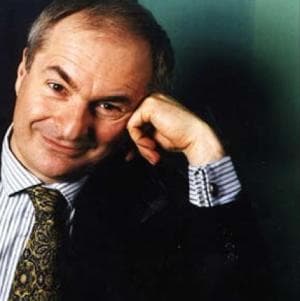
Those who are closest to the pain will be your guide and your inspiration, as you search for a connection between those at the heart of the problem and your donors and prospects. You must be the interpreter; you must respect them and their stories, but they are not ‘the word of god’.
They may understand their own experience best, but you are most likely to understand the donors best.
I have to honour the memory of Martyn Taylor the ex-chair of THT who allowed us to tell the story of his life as a primary school head teacher in Devon who became HIV positive. He later died, but not before he had spoken out so courageously, so many times, to so many people – all of who had the chance to learn important lessons from him
His letter was our very first effort and we used his own words to describe how he learned from his doctor that he was HIV positive. We used them in a heading and, in those frightening days, some prospects got confused and thought it was information about them. After some changes and refinement, it became our banker and was used successfully many times.
Tony Whitehead, one of the founders of THT, let us tell the heartrending story of his lover’s death in his arms. Thankfully Tony was able to receive some of the early, new treatments and is still with us, still helping THT.
So what did I learn?
In a new organisation in the face of urgent need, take risks and don’t worry about the small stuff. Our first mailings had horrible errors both in the database and in some of the early approaches, but they worked.
We were the very first organisation in the UK to solicit legacies over the phone, a brave move for an organisation with many supporters who were extremely ill, some of them gravely. This early adoption of cutting-edge techniques helped to build the foundations for THT’s long-term survival.
When people are personally affected by disasters speak to them directly, do not let other people act as barriers. It is all too easy for well-meaning experts to assume that fundraisers are insensitive beasts who must be kept away from the tender beneficiaries. We may be hungry to deliver funds, but we are principled beasts and without direct connections we can never find the rich and vivid stories that are our lifeblood and the connection to the donor’s heartbeat.
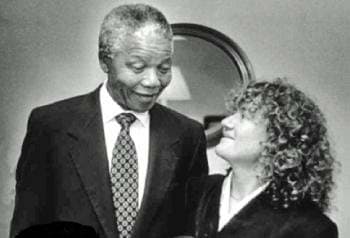
The values of your organisation should be your guide not someone’s idea of appropriate ‘gate keeping’ – you just have to open the gate and speak directly to those affected. Adults are quite capable of making intelligent decisions for themselves, even if they are ill or experiencing hard times.
There is also clear evidence that speaking openly about a traumatic experience is part of recovery and healing. There is a Yiddish saying ‘trouble overcome is good to tell’.
Use what you have got, milk your assets hard and often – as my old dad says, ‘What happens when you don’t milk a cow? It dries up.’
Many organisations struggle to find celebrities, so it was wonderful that THT had amazing support from celebrities. I have to admit I got to be quite cavalier about it, to the extent of nearly missing an important opportunity with Paul Gambaccini, a DJ and broadcaster, who knew everybody. I was amazed when he opened his address book – everyone was there from George Michael to Emma Thompson.
In 1993, he led THT’s first major donor campaign, which raised £300,000. It was a lot of money back then – and still is. This led to an intimate event organised by the gorgeous chef and mushroom expert Antonio Carluccio. I’m still thrilled that this is where I got a kiss from George Michael. Only the cheek, but still…
The truth is, I had to be persuaded to let Paul Gambaccini get the campaign started, I was just too used to celebrities offering to do things for us. I took it for granted, instead of giving it the real value it deserved.
But the most important thing I have learned is that it is a privilege to be a fundraiser. When you are working on the toughest issues in the hardest times, you know that your blood, sweat and tears will be turned to gold, that your work will be meaningful, relevant and will matter, that you will be able to look back and say, along with Edith Piaf, non, je ne regrette rien. Of course there are other benefits... like getting kissed by George Michael and Nelson Mandela.



